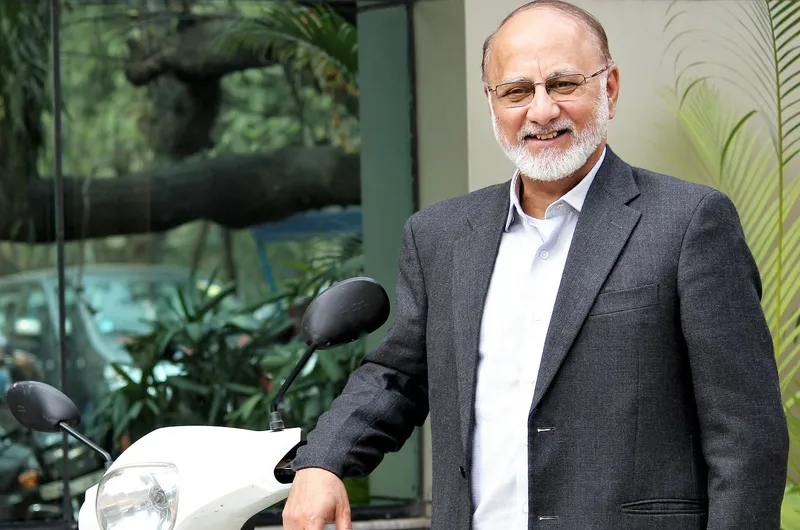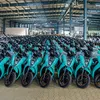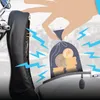Hero Electric suffers Rs 2,000 Cr loss, Benling axes 50% jobs post FAME II subsidy delisting
The Ministry of Heavy Industries, in September 2022, banned seven EV two-wheeler makers from applying for FAME II subsidies on their future electric vehicles. Many have suffered huge financial losses as a result.
While the manufacturing facilities of and Benling India have started seeing some activity again, they were trapped in a haunting stillness until recently. The drastic decline in sales of their electric two-wheelers (E2Ws) had cast a pall over their once-bustling factories, leaving them with no choice but to switch off the lights at these production centres, even if temporarily.
The precipitous decline in sales has been a direct result of the Ministry of Heavy Industries’ (MHI) September 2022 directive that barred seven electric two-wheeler makers, including Hero Electric, Benling India, and Okinawa from applying for subsidies under the FAME II programme, effectively making their vehicles costlier than their competitors.
The disqualification of these seven companies from the FAME II programme—via delisting from the National Automotive Board (NAB) portal—has dealt them a severe financial blow resulting in substantial losses.
The NAB portal is where companies registered under the FAME II Scheme must get their vehicle models certified. This certification is necessary for them to be eligible for claiming subsidies under the scheme.
Hero Electric’s financial loss has surpassed Rs 2,000 crore since it was delisted from the NAB portal, even though its newer models are fully compliant with the FAME II localisation guidelines.
The company’s CEO, Sohinder Gill, tells YourStory, Hero Electric has been unable to carry out its operations—including producing vehicles—for the past seven months.
“It became impossible to manage operating expenses,” Gill laments.

Sohinder Gill, CEO, Hero Electric
Once a trailblazer in India’s electric two-wheeler sector and the first company to introduce an E2W in the country back in 2007, Hero Electric is now staring down the barrel of a gun.
The ban on the seven EV companies came after the MHI asked them to return the subsidies it had released. The ministry alleged the companies had misappropriated the funds because they did not comply with FAME II localisation norms—mandating at least 50% of their components in the EVs be indigenously manufactured or locally sourced.
The clawback has hurt a lot of companies that have already passed on the subsidies as discounts to consumers.
In an earlier interview, Gill admitted the company was in dire straits and scrambling for capital to ease its operational issues. One of the options being considered is an accelerated initial public offering (IPO), which would be a “one-time reprieve if things get too desperate”, he had said.
Hero Electric resumed production in February.
Gurugram-based Benling, too, has faced similar challenges.
Set up in 2018, Benling India resumed production of its new vehicles only around three weeks ago. Sales bottomed out after it was forced to raise prices in the absence of subsidy discounts.
A source inside the company, who does not wish to be identified, tells YourStory that while Benling was selling 3,000-3,500 EV two-wheelers per month a year ago, it has only managed to sell as many over the last six months.
“We’ve had to scale back drastically in terms of production and even expenses. Some distributors have dropped Benling from their showrooms because no one wants to buy scooters at high prices without the subsidy discounts,” the source says.

Additionally, the company also had to downsize drastically—from around 220 employees nine months ago, Benling India is down to a meagre 100 people.
The EV manufacturer declined to comment on the matter.
Tug-of-war with government
Hero Electric, Benling India, Okinawa, Ampere, Revolt, and Lohia Auto are reportedly said to owe the government a refund cheque for Rs 500 crore—a sum the companies have contested saying they’d informed the government of the fact that they weren’t able to source local materials by the government’s deadline, among other reasons.
Industry insiders say that the government has resisted discussing relisting the companies on the NAB portal until they pony up and refund the subsidies.
“Our petition to the government has been to treat the repayment of subsidies and the NAB delisting as two separate issues. The NAB ban will hurt these companies’ future businesses. It’s unfair to damage a company’s future business because of past wrongdoings,” said a spokesperson of an EV representative body that did not wish to be named.
They added that with the government actively engaging in dialogue with original equipment manufacturers (OEMs) to find a middle ground and resolve the issue, reconciliation may happen sooner than later.
Industry body Society of Manufacturers of Electric Vehicles (SMEV), in a letter to the MHI, has suggested that the government, as a compromise, allow the OEMs to recover the subsidies paid out from customers and pass it back to the ministry.
“Since the MHI is suggesting that the subsidies passed on to customers by OEMs now stand cancelled due to technical reasons decided by MHI subsequently, the customers who have taken such subsidies can be asked to return these to OEMs in all fairness,” the letter said.
The letter also stated that the OEMs were willing to share any customer data required by the government so that they could make an official public announcement.
"I am optimistic that the MHI will take a more adaptable and practical stance to address this deteriorating scenario, with the aim of preventing a complete setback to the e-mobility mission," says Gill.
(The copy was updated for clarity.)
Edited by Kanishk Singh









